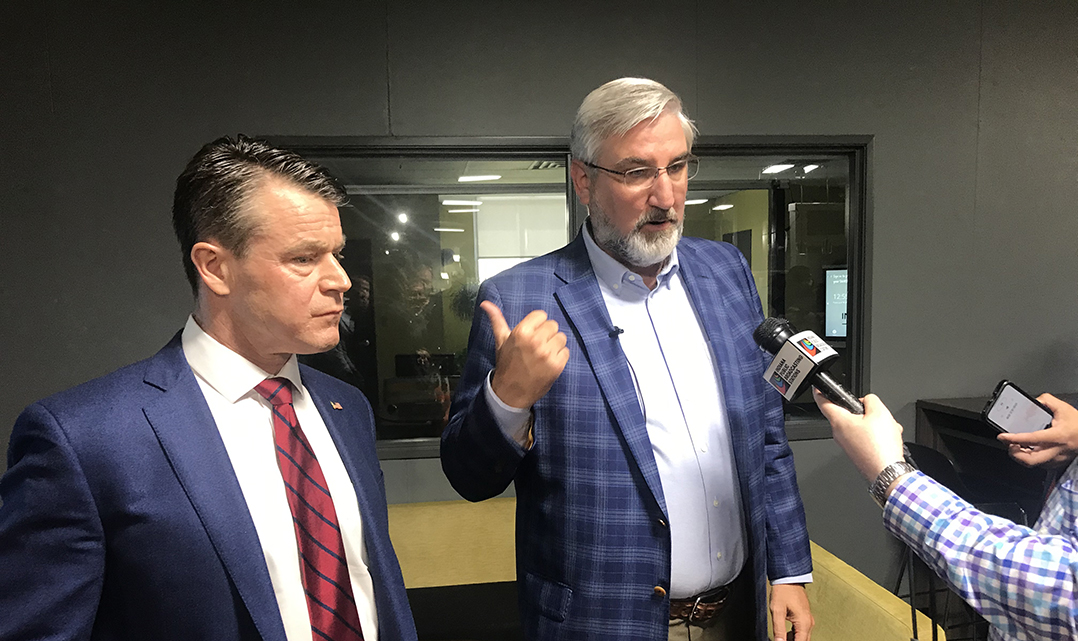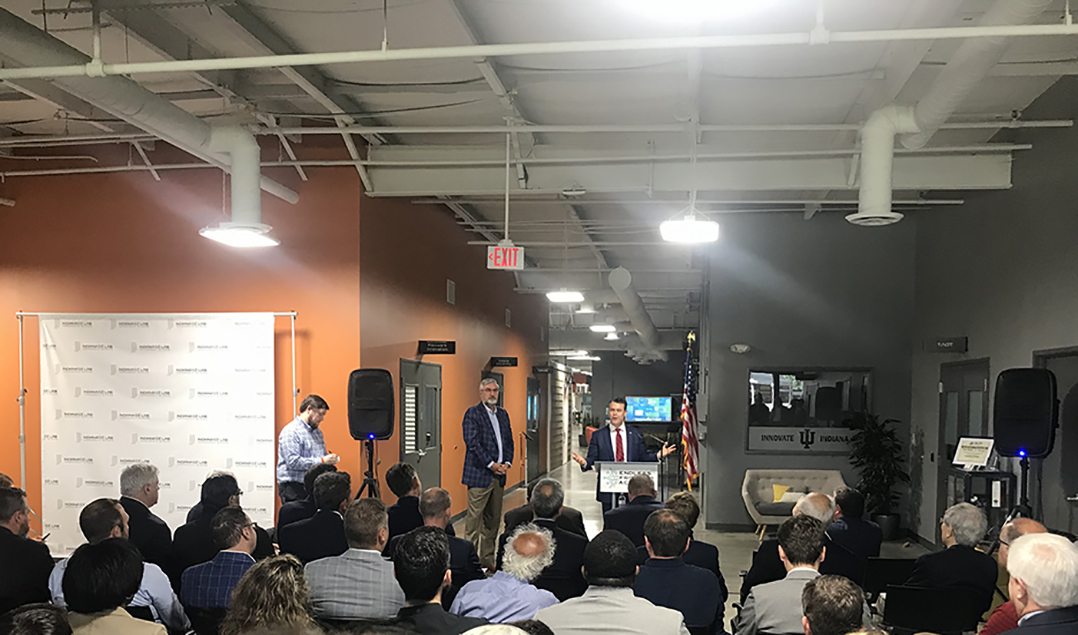U.S. Sen. Todd Young spent June 18 in Fishers making a case for the Endless Frontier Act, which passed the Senate on June 8, 68-32, with bipartisan support.
If the bill passes the House and is signed by President Joe Biden, it would invest billions of dollars in various technological initiatives with the goal of boosting the U.S. economy and nudging out China as the world’s technological leaders, according to Young.
“(The legislation) will help Hoosiers lead the way as we out-innovate, out-compete and outgrow the Chinese Communist party,” Young said. “We are in competition to see who will win the 21st century, to make this the second American century. The Endless Frontier Act would give America the upper hand against our geo-political rival.”
The bill includes $29 billion for artificial intelligence, quantum computing, robotics, biotech and advanced energy technologies. It would offer $52 billion in emergency spending to end a shortage of microchips and semiconductors, while returning the production of those items to America. And the bill, co-authored by Young and 12 other senators, including Chuck Schumer (D-N.Y.), Susan Collins (R-Maine), Lindsay Graham (R-S.C.) and Christopher Coons (D-Del.), adds $17.5 billion in funding for the Defense Advanced Research Projects Agency.
Another component of the bill would create 18 regional tech hubs across the nation, with Indiana being a frontrunner for one of them. That’s why Young joined Gov. Eric Holcomb at the Indiana IOT Lab to promote the bill. Indiana’s region also includes Illinois, Michigan, Ohio, Minnesota and Wisconsin. A hub is expected to be selected by 2026.
“At least one of those states will land a tech hub, but there very well might be several of those states landing a tech hub based on merits,” Young said. “I’m less concerned about the competition. If (Indiana) pulls together all of our assets, if we make the case, as the governor consistently does in bringing in foreign investment to this state as well as domestic investment, we’re not going to have to worry about the competition.”
It remains uncertain if the bill has the votes to pass the House. Several lawmakers have expressed concern, with one being its expense and another that it does not do enough to protect American interests against Russia.
U.S. Rep. Victoria Spartz, who represents Indiana’s 5th District, is undecided on the bill.
“I really respect my colleagues, and they have to make their own decisions about how they vote, but I’ll say that this bill is incredibly popular across the state of Indiana, and that’s who I answer to,” Young said.






